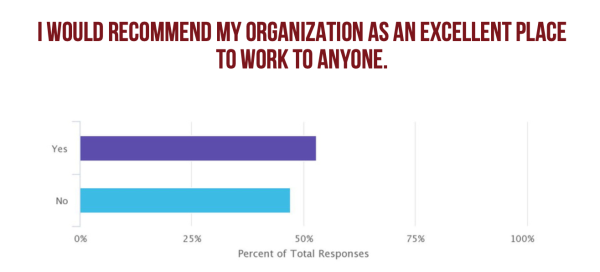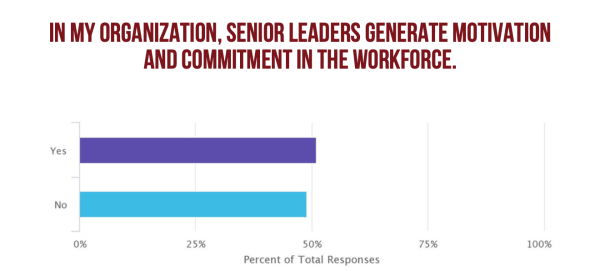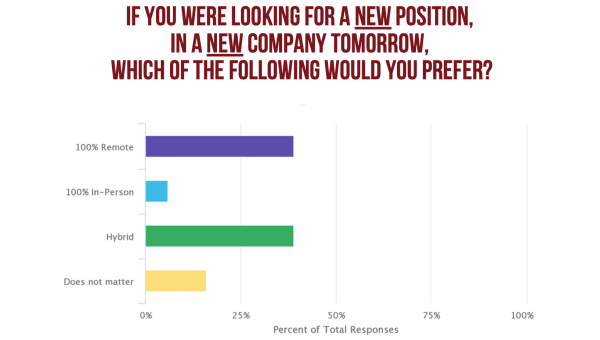Today many of the industry’s leaders will be converging on Savannah, Georgia for NSSF’s 2023 Marketing & Leadership Summit which runs through Wednesday.
Among those participating at this year’s Summit is gold sponsor HeadHunters NW which very recently completed its Shooting Industry Employee Satisfaction Survey for 2023. I sat down with Shaylene Keiner, President of HHNW, during the NRA Show in Indianapolis to talk about the importance of the survey.
Late last week the Outdoor Wire Digital Network received an advance copy of the survey results.
The survey was designed “to assist employers and managers in the firearms industry to understand the needs and expectations of their workforce.” And the results provide interesting insights into the current dynamics of today’s workforce, albeit heavily weighted towards the upper echelon of the workforce.
This makes sense as HeadHunters NW is a search firm that recruits talent for the various C-suite roles and vital management positions for companies within the shooting sports industry. The kind of jobs that companies need help in finding good people to fill those open positions.
The good news from the survey is that 53% would recommend their organization as an excellent place to work.

The bad news is, 53% would recommend their organization as an excellent place to work. Or, looked at another way, 47% of respondents would NOT recommend working where they do.
Why this is of particular concern is due to the fact that more than a combined 50% of the survey respondents reported making $100,000 to $150,000 and $200,000+. That number jumps to over 70% of respondents if you include those making $70,000 to $100,000.
So, a large number of the very people making a salary that puts them in the upper tier and middle management of a company consider the company a less than ideal place to work.
Another damning stat to come from the survey is this: When asked if senior leaders generate motivation and commitment in the workplace, 51% answered "yes," while 49% answered "no."

The responses to these two key questions would indicate that a certain percentage of the companies/organizations within the industry have a significant culture problem. A bad company culture leads to low morale, which in turn leads to employee turnover.
Right now, I know of three people working at three different companies, of differing sizes, and in different segments in the industry, that are actively looking for another job. In each case poor leadership and the resulting low morale is driving their urge to leave.
While this is simply anecdotal evidence, it dovetails with some of the findings from the Shooting Industry Employee Satisfaction Survey.
This is likely a bitter pill to swallow for companies that think of themselves as ‘a family.’ A popular declaration, the ‘F word’ makes leaders feel better about their own leadership than accurately describing the company culture.
When the CEO or President tells you “we’re a family” it is frequently the first sign that it is not, and sometimes precedes layoffs. I know because I have seen it happen.
Another key finding in the survey is that “when choosing between working in-person, remotely, or a hybrid combination, only 14% preferred in-person, and there was close to a 50-50 split between remote work and a hybrid model of remote work plus in-person.”

Remote work took off during the pandemic as companies were forced to close the doors to their facilities. As people got used to the luxury of working from home, the thought of returning to their place of work became, well, repugnant.
Keiner sees it as a new reality, a paradigm shift, that requires employers, as well as employees, to learn how to integrate remote workers into the teams. A difficult task right now as companies struggle to reintegrate employees to their corporate work spaces.
Remote work opportunities are a significant draw for potential employees whose positions can be handled remotely. Over 60%, approximately, of the respondents to the survey already work remotely or in a hybrid mix of remote and in-person. So it should come as no surprise that they would want to continue along this path.
What I wonder is this. Does a poor company culture, or poor senior management, drive that desire to work remotely, and thus avoid an unpleasant in-person environment?
Growing up in a family business, the idea of working remotely never crossed my mind. It wasn’t until I went out on my own did I work from home. And, of course, the Outdoor Wire Digital Network has always been a remotely run enterprise.
But there is a great deal that comes from working in an environment with fellow employees where things are collaborative. Ideas pop up from all sorts of places within a company and not just from ‘carpet land’ where the salaried employees live.
There is a lot to be said for working remotely, but there is also a lot that is lost.
Recently, several studies have addressed the downside of working from home, which includes loneliness, the absence of social work relationships, and a lack of mentoring that negatively impacts career advancement.
Good companies, ones with a strong leadership and even stronger culture, can embrace remote work opportunities to attract the right people for the job. Weaker companies may see themselves as trendy with a progressive business model of offering remote work only to later find it hides their weaknesses as employee turnover continues.
There are a lot of variables in building a solid workforce. Smart companies will look to HeadHunters NW and their Shooting Industry Employee Satisfaction Survey to question their own position as an industry employer, asking if they are among the 53% that are excellent, or the 47% that are not.
If you are one of those companies questioning where you are on the spectrum of great to mediocre companies, you might consider talking with someone who specializes in knowing the right – and sometimes tough – corporate culture questions to ask, like Shaylene Keiner at HeadHunters NW.
– Paul Erhardt, Managing Editor, the Outdoor Wire Digital Network
